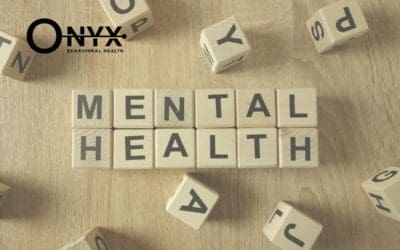Sleep deprivation is much more harmful than you might think. Sure, everyone knows that not getting enough shuteye makes you sluggish and irritable the next day, and it’s no secret that too little sleep causes a similar cognitive impairment as someone who’s been drinking alcohol. But did you know that lack of sleep can end up causing anxiety? Here’s the surprising relationship between sleep and anxiety and the important role that rest plays in your mental health.
The relationship between sleep deprivation and anxiety
Sleep plays a crucial role in regulating our emotions and managing stress levels. When you don’t get enough sleep, your body’s ability to cope with stress and anxiety is compromised. This can lead to an increased risk of experiencing anxiety attacks, as well as exacerbating existing anxiety disorders. On the other hand, anxiety disorders can contribute to sleep disturbances, creating a vicious cycle that perpetuates both conditions.
How sleep deprivation affects anxiety levels
Lack of sleep can impair your ability to regulate emotions effectively, making you more prone to experiencing intense feelings of anxiety and panic. It can also affect your cognitive functioning which includes decision-making, problem-solving, and emotional processing. If your brain isn’t functioning at its best, it can make it harder to cope with stressful situations, meaning you experience greater emotional responses and with less control.
Physiologically, sleep deprivation can alter the levels of hormones and neurotransmitters involved in regulating mood and stress responses, such as cortisol and serotonin. These neurochemicals have direct correlations with anxiety (and other mental illnesses), and imbalances of which can contribute to increased anxiety and emotional instability.
As a result of all this, the body’s stress response system becomes more sensitive when sleep-deprived, leading to an exaggerated reaction to perceived threats or stressors, thus increasing the likelihood of experiencing anxiety attacks.
The impact of anxiety on sleep quality
Just as sleep deprivation can exacerbate anxiety, the reverse is also true. Anxiety disorders can significantly disrupt your sleep patterns, leading to insomnia or poor sleep quality.
Racing thoughts, a common symptom of anxiety, are characterized by excessive worrying and rumination. Such thoughts can make it difficult to fall asleep or stay asleep throughout the night. Additionally, people with anxiety disorders are more prone to experiencing nightmares and sleep disturbances, further impacting their sleep quality.
Physically, anxiety can cause symptoms like muscle tension, restlessness, and rapid heartbeat, which signal the body to be alert, rather than getting ready for bed. The chemicals and hormones involved in causing these physiological responses directly counteract the effects of chemicals like melatonin.
When a panic attack strikes, the symptoms are similar to those of panic attacks, characterized by rapid heartbeat or breathing, sweating, and racing thoughts.
What causes anxiety attacks?
The precise cause of panic attacks is not yet known. There are many potential neurochemicals and hormones that can contribute to feelings of anxiousness, with some being more directly involved than others. Aside from chemical imbalances, other causes of anxiety attacks range from acute causes (e.g. drinking too much coffee, having money issues), to more chronic causes of anxiety (e.g. trauma from having been bullied as a child).
Being tired isn’t a pleasant experience, but is it really powerful enough to trigger anxiety attacks? Yes and no. If you don’t have a genetic predisposition toward anxiety and aren’t already diagnosed with it, you likely don’t need to worry that a few restless nights will cause an anxious episode. If you do have a family history or a diagnosis of some sort of mental illness, you need to take extra care so that sleep deprivation doesn’t exacerbate an existing neurochemical or hormone imbalance.
Get professional help for sleep and anxiety disorders
If you’re struggling with chronic sleep deprivation, anxiety disorders, or both, it’s essential to seek professional help. A healthcare professional can provide you with the appropriate diagnosis and treatment plan tailored to your specific needs.
Treatment options may include:
- Cognitive-behavioral therapy (CBT)
- Medication
- Sleep hygiene education
- Stress management techniques
CBT is a highly effective form of therapy that can help you identify and change negative thought patterns and behaviors contributing to your sleep and anxiety issues. In some cases, your healthcare provider may prescribe medication to help manage anxiety or improve sleep, either as a short-term or long-term solution. Learning effective stress management techniques can help reduce anxiety levels and promote better sleep.
Taking care of your sleep is an investment in your mental well-being. Take control of your life and contact us today to learn how we can help you rest easy even if you’re living with anxiety.





 Kendra Cemoin
Kendra Cemoin Michaela Welk, LMHC
Michaela Welk, LMHC Bunny Berman
Bunny Berman Tank
Tank Richard E. LoSardo, MD
Richard E. LoSardo, MD Christopher Payne
Christopher Payne Bernard Benjamin
Bernard Benjamin